|
|
Meeting
Room
|
|
7:00 am – 5:00 pm
|
Registration Table
|
King Arthur Foyer
(third floor) |
|
7:30 am – 8:30 am
|
Breakfast
|
Camelot Ballroom
(third floor) |
|
8:00 am – 8:25 am
|
CSCTR Membership Meeting
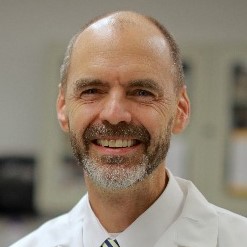 David Kennedy, PhD David Kennedy, PhD
President, CSCTR
Associate Professor of Medicine
University of Toledo College of Medicine and Life Sciences
|
Streeterville Room
(ground floor) |
|
8:30 am – 8:40 am
|
Welcome and Opening Remarks
 David Kennedy, PhD David Kennedy, PhD
President, CSCTR
Associate Professor of Medicine
University of Toledo College of Medicine and Life Sciences
 Jeffrey Salomon, MD, MBA Jeffrey Salomon, MD, MBA
Councilor, CSCTR
Midwestern Chair, AFMR Midwestern Region
Pediatric Critical Care Medicine Physician
University of Nebraska Medical Center
|
King Arthur Court
(third floor) |
|
8:45 am – 10:45 am
|
MWAFMR Career Development Workshop
Moderators:
 Laneshia Tague, MD, MSCI Laneshia Tague, MD, MSCI
Secretary-Treasurer, AFMR Midwestern Region
Assistant Professor of Medicine
Washington University in Saint Louis
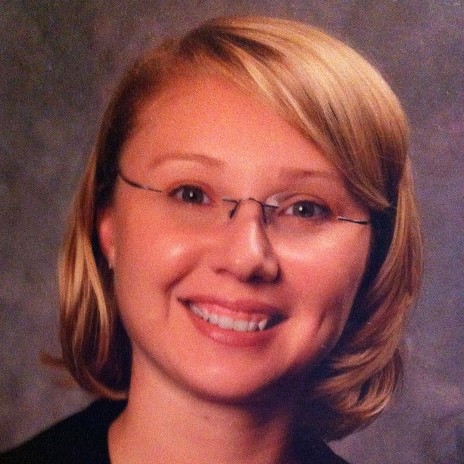 Jennifer Alexander-Brett, MD, PhD Jennifer Alexander-Brett, MD, PhD
President-Elect, CSCTR
Past Chair, AFMR Midwestern Region
Assistant Professor of Medicine
Washington University School of Medicine in St. Louis
 Bella Z. Khatib-Shahidi, BS Bella Z. Khatib-Shahidi, BS
Medical Student
University of Toledo College of Medicine and Life Sciences
Speakers:
Building Your Research Network
This talk will emphasize the importance of building a research network as part of career development/advancement and guidance on how to do that successfully. Dr. Mikuls will share some personal experiences with the VARA group and mentoring in that context.
 Ted R. Mikuls, MD, MSPH Ted R. Mikuls, MD, MSPH
Stokes-Shackleford Professor of Rheumatology
University of Nebraska Medical Center
 Vinayak Prasad, MD, MPH Vinayak Prasad, MD, MPH
Professor, Epidemiology & Biostatistics
University of California, San Francisco
School of Medicine
Using Aggregated, De-identified Electronic Health Record Data for Scientific Discovery
In this session viewers gain exposure to aggregated, de-identified electronic health record data tools, especially TriNetX and Epic's Cosmos Data Network. They will learn what these tools are and how the hundreds of millions of patients' data in these tools can be used for scientific discovery.
 David Kaelber, MD, PhD, MPH, FAAP, FACP David Kaelber, MD, PhD, MPH, FAAP, FACP
Associate Professor
Case Western Reserve
School of Medicine
Department of Population and Quantitative Health
|
King Arthur Court
(third floor) |
|
10:45 am – 11:00 am
|
Coffee Break
|
Camelot Ballroom
(third floor)
|
|
11:00 am – 12:30 pm
|
New Investigator Session
Moderator:
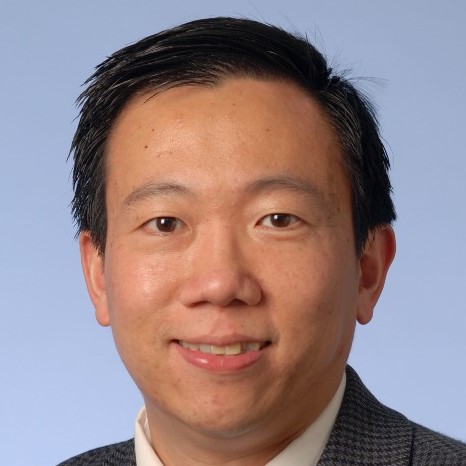 Suthat Liangpunsakul, MD, MPH Suthat Liangpunsakul, MD, MPH
Past President, CSCTR
Professor of Medicine
Indiana University School of Medicine
 Prabhatchandra Dube, PhD Prabhatchandra Dube, PhD
Research Associate
University of Toledo College of Medicine and Life Sciences
Presenters:
Outstanding Young Investigator
PDK4-Mediated Formation of the Ca2+-Channeling Complex at the ER-Mitochondria Interface Contributes to the Development of Alcohol-Associated Liver Disease
Mitochondrial dysfunction played a central role in alcohol-associated liver disease (ALD), with Ca²⁺ overload-induced mitochondrial damage as a key mechanism. The formation of mitochondria-associated endoplasmic reticulum (MAM) membranes, which facilitated the transfer of Ca²⁺ from the ER to mitochondria, contributed to mitochondrial Ca²⁺ accumulation and dysfunction. However, the exact mechanisms underlying mitochondrial Ca²⁺ accumulation in ALD remained poorly understood. In this study, we explored the role of MAMs in ALD pathogenesis. We found that alcohol enhanced MAM formation, promoting the formation of a MAM Ca²⁺-channeling complex (MCCC) composed of IP3R1, VDAC1, and GRP75. Additionally, we demonstrated that the MAM-associated protein pyruvate dehydrogenase kinase 4 (PDK4) regulated MCCC formation by phosphorylating GRP75, leading to mitochondrial Ca²⁺ overload, mitochondrial dysfunction, and liver injury. These findings highlighted PDK4 as a potential therapeutic target for ALD and offered new insights into the pathogenesis and treatment of this increasingly prevalent condition.
 Themis Thoudam, PhD Themis Thoudam, PhD
Division of Gastroenterology and Hepatology
Indiana University School of Medicine
2023 Early Career Development Awardee
Mapping the Neural Circuits that Drive Stress-Induced Hyperglycemia
During critical illness, glucose mobilization leads to “stress-hyperglycemia”, an adaptive process that promotes survival. Both inadequate and excessive glucose mobilization is associated with increased in-hospital mortality and the precise glycemic target for each individual is unknown. Achieving the appropriate degree of glucose mobilization during stressful situations depends on central nervous system coordination of the various components of the glycemic response to stress, including HPA axis activation and catecholamine release. We have identified distinct populations of neurons in the hypothalamus that control different glycemic stress response components, indicating that optimal stress hyperglycemia is coordinated across multiple neural circuits. These findings lay the groundwork for establishing the specific mechanisms through which the brain coordinates glucose mobilization during stress, a key step in identifying targeted treatments for managing stress hyperglycemia.
 Alison Affinati, MD, PhD Alison Affinati, MD, PhD
Assistant Professor
University of Michigan
2024 Early Career Development Awardees
Distinct Histopathological Phenotypes of Severe Alcoholic Hepatitis Suggest Different Mechanisms Driving Liver Injury and Failure
Our study identifies distinct patterns of hepatic inflammatory cell infiltration in patients with severe alcoholic hepatitis (SAH), linking neutrophil infiltration to disease severity. Hepatic neutrophil cytosolic factor 1 (NCF1) is upregulated in SAH and correlates with neutrophil presence. Using Ncf1 knockout mice, the study shows that loss of Ncf1 reduces neutrophil accumulation, liver injury, and inflammation in ethanol-induced liver injury.
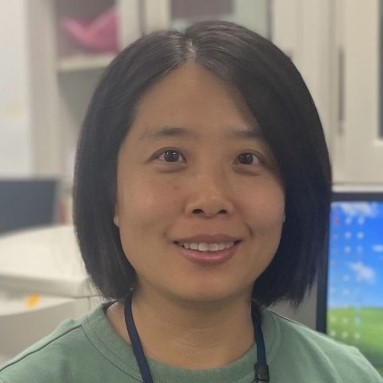 Jing Ma, MD, PhD Jing Ma, MD, PhD
Assistant Research Professor of Medicine
Indiana University School of Medicine
Preventing Cardiovascular Disease in South Asians: A New Focus on the 2nd Generation
People of South Asian ethnicity experience high rates of cardiovascular disease and excess burden of cardiovascular and metabolic risk factors at younger ages compared with other groups. Reasons for this disproportionately high prevalence of cardiovascular diseases remain under investigation. In the United States, the 2nd generation South Asian community is rapidly growing. Dr. Shah's research focuses on understanding earlier-life development of cardiovascular risk factors in this population, with a goal to develop and implement adapted and contextualized cardiovascular disease prevention strategies across the life course.
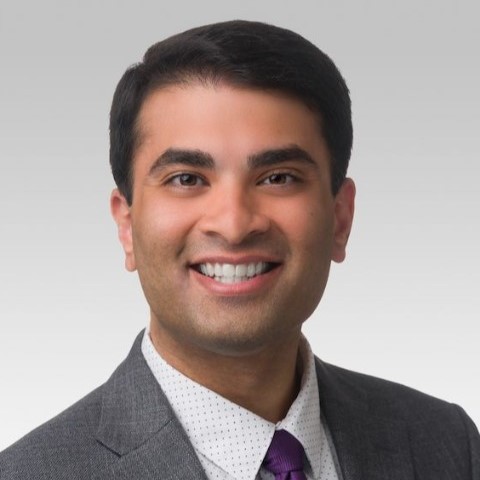 Nilay Shah, MD, MPH Nilay Shah, MD, MPH
Assistant Professor
Northwestern University Feinberg School of Medicine
Skeletal muscle regulation of hepatic responses
Hepatocellular cancer (HCC) is a malignancy with a poor outcome with limited preventive approaches. Cirrhosis remains the major risk factor for HCC, and both cirrhosis and HCC are associated with sarcopenia, a frequent complication of liver disease and cirrhosis. A number of interventions have been suggested to reverse sarcopenia in liver disease by targeting the mediator(s) of the liver-muscle axis. Our preliminary studies in vivo in preclinical models have shown that skeletal muscle can regulate hepatic biological processes, including hepatic fibrosis and steatosis, risk factors for HCC. We have previously reported that myostatin, a transforming growth factor beta superfamily member, mediates sarcopenia in liver disease. Conditioned medium from murine C2C12 myotubes with depletion of myostatin and increased protein synthesis and myotube diameter decreased murine HCC cell proliferation and viability. We also observed less muscle expression of myostatin in voluntary wheel running (VWR) than in usual activity mice. Interestingly, others have reported that hyperammonemia (a consistent metabolic perturbation in cirrhosis) caused increased hepatic stellate cell activation and collagen deposition and we have shown that hyperammonemia is a mediator of the liver muscle axis. We also observed that muscle molecular, metabolic, functional, and multiomics responses to hyperammonemia were reversed by VWR. Additionally, gut dysbiosis, which is also believed to contribute to HCC, was reversed by VWR. Perivenous fibrosis during hyperammonemia in mice was also reversed by VWR. These data provide the mechanistic basis for the clinical observation of beneficial responses of exercise to lower HCC prevalence in humans. Our ongoing studies in mice with muscle-specific deletion of myostatin with intraperitoneal diethylnitrosamine (DEN) with a high-fat diet and VWR mice with DEN/HFD, will provide the rationale for exercise-induced beneficial responses via myoexerkines, including less myostatin expression in skeletal muscle. These transformative studies are likely to be a novel strategy for HCC prevention in cirrhosis while simultaneously restoring skeletal muscle mass.
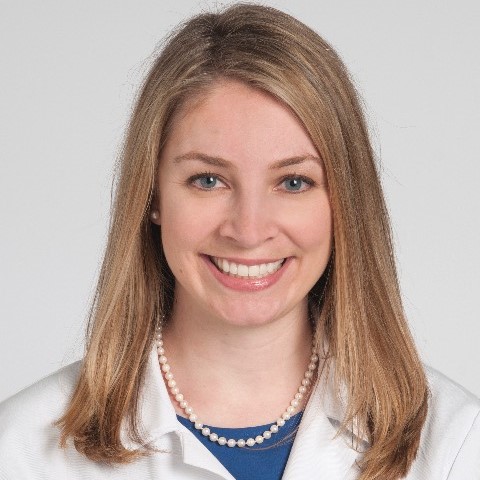 Nicole Welch, MD Nicole Welch, MD
Assistant Professor of Medicine
Cleveland Clinic Lerner College of Medicine
|
King Arthur Court
(third floor) |
|
12:30 pm – 1:15 pm
|
Lunch
|
Camelot Ballroom
(third floor) |
|
1:00 pm - 5:00 pm
|
Setup posters for Monday, April 14th 5:30 pm session
|
Avenue Ballroom
(ground floor) |
|
1:15 pm – 2:15 pm
|
Department Chair Session
Moderators:
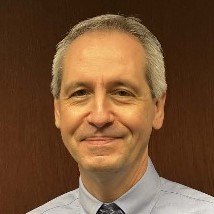 Steven Dudek, MD Steven Dudek, MD
Past President, CSCTR
Professor of Medicine
University Illinois at Chicago
 Sudheer Dhoop, MD Sudheer Dhoop, MD
Chief Resident
Internal Medicine Residency Program
University of Toledo College of Medicine and Life Sciences
Speakers:
Advancing Medical Research: Innovations and Insights from Junior Faculty at UIC
This session will showcase innovative research by three junior faculty members in the Department of Medicine. This session will feature diverse topics spanning translational medicine, clinical research, and novel therapeutic strategies, highlighting the latest advancements in patient care and medical science. Each presenter will share their expertise, findings, and future directions. Whether you are a researcher, clinician, or student, this event offers a unique opportunity to engage with emerging leaders in the field and explore the future of medical research.
 Rachel Caskey, MD, MPP Rachel Caskey, MD, MPP
Earl M. Bane Professor and Head
Department of Medicine
University of Illinois Chicago
 Sarah Messmer, MD Sarah Messmer, MD
Assistant Professor of Medicine and Pediatrics
University of Illinois Chicago
 Marcos Munoz, PhD Marcos Munoz, PhD
Assistant Professor
University of Illinois Chicago
 Andrea A. Pappalardo, MD Andrea A. Pappalardo, MD
Associate Professor of Medicine and Pediatrics
University of Illinois Chicago
|
King Arthur Court
(third floor) |
|
2:15 pm – 2:25 pm
|
Coffee Break
|
Camelot Ballroom
(third floor) |
|
2:25 pm – 3:25 pm
|
Cardiology/Pulmonary Lecture
Moderators:
 Jeffrey Salomon, MD, MBA Jeffrey Salomon, MD, MBA
Councilor, CSCTR
Midwestern Chair, AFMR Midwestern Region
Pediatric Critical Care Medicine Physician
University of Nebraska Medical Center
 Vaish Aradhyula, MS, BS Vaish Aradhyula, MS, BS
Fourth-year MD/MBA Student
University of Toledo College of Medicine
Speaker:
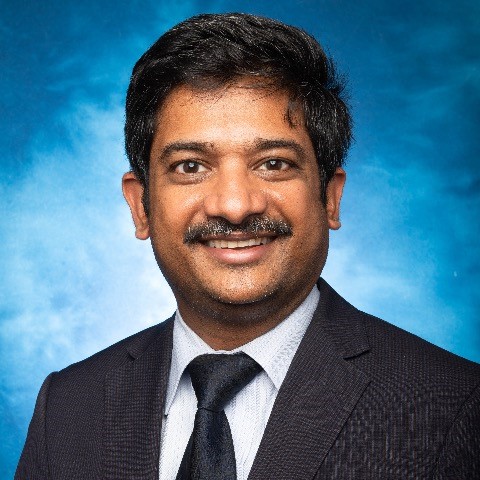 Ram Kumar Subramanyan, MD, PhD, FACS Ram Kumar Subramanyan, MD, PhD, FACS
Chief, Pediatric Cardiothoracic Surgery
Professor of Surgery
Children's Nebraska/University Nebraska Medical Center
|
King Arthur Court
(third floor) |
|
3:25 pm – 3:35 pm
|
Coffee Break
|
Camelot Ballroom
(third floor) |
| |
*Concurrent Sessions:
|
|
|
*3:35 pm – 4:30 pm
|
Annual Max Miller Lecture in Diabetes Research
Moderators:
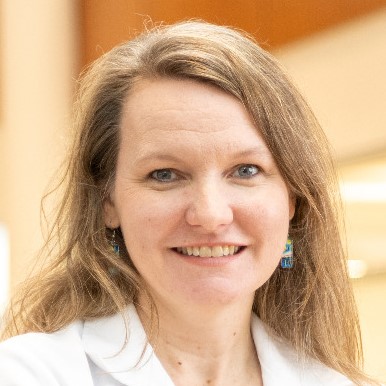 Dawn Belt Davis, MD, PhD Dawn Belt Davis, MD, PhD
Past President, CSCTR
Professor
University of Wisconsin – Madison
 Anupam Kotwal, MBBS, MSc Anupam Kotwal, MBBS, MSc
Past Chair, AFMR Midwestern Region
Assistant Professor of Medicine
University of Nebraska Medical Center
 Heidi Christian, MD, MS Heidi Christian, MD, MS
Pathology Resident
University of Illinois Hospital and Health Sciences System
Speaker:
Mitochondria and the regulation of pancreatic beta cell fate
Type 1 and type 2 diabetes, the most common forms of the disease, share the common pathology of dysfunctional insulin-producing pancreatic beta cells. Despite their roles in energy production in beta cells and other metabolic tissues, how abnormal mitochondria contribute to diabetes remains unclear. In this lecture, new paradigms of the importance of mitochondria in the fate of metabolic tissues will be discussed, including methods to overcome damaged mitochondria in diabetes and how to target mitochondria to enhance beta cell formation to treat diabetes.
 Scott Soleimanpour, MD Scott Soleimanpour, MD
Associate Professor
Director of the Michigan Diabetes Research Center
University of Michigan
|
Streeterville Room
(ground floor) |
|
*3:35 pm – 4:30 pm
|
Inflammation, Immunity, and Transplant
Moderators:
 Suman Setty, MBBS, PhD Suman Setty, MBBS, PhD
Councilor, CSCTR
Associate Professor of Pathology
University of Illinois at Chicago
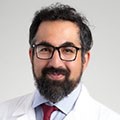 Syed Bukhari, MD, MSc Syed Bukhari, MD, MSc
Chair-Elect, AFMR Midwestern Region
Vascular Medicine Fellow
Cleveland Clinic
 Ruchi Naik, MD, PhD Ruchi Naik, MD, PhD
Assistant Professor of Clinical Medicine
Fellowship Director- Transplant Nephrology
University of Illinois Chicago
Speakers:
Recent Insights into the Role of Neutrophils in Primary Graft Dysfunction after Lung Transplantation
This lecture will discuss neutrophil-dependent mechanisms of lung ischemia-reperfusion injury that contribute to primary graft dysfunction (PGD) after lung transplantation. Emphasis will be placed on recent advances in neutrophil extracellular traps, neutrophil metabolism, and neutrophil heterogeneity, and how these preclinical insights could be leveraged to develop novel neutrophil-directed therapies for PGD.
 Davide Scozzi, MD, PhD Davide Scozzi, MD, PhD
Assistant Professor
Norton Thoracic Institute at the St. Joseph`s Hospital and Medical Center
Creighton University School of Medicine
Tales from the gut: Novel strategy to mitigate complications in short bowel syndrome
 Ajay Jain, MD Ajay Jain, MD
Professor of Pediatrics, Pharmacology and Physiology
Director MD/PhD Program, School of Medicine
Saint Louis University
|
King Arthur Court
(third floor) |
|
4:40 pm - 5:25 pm
|
Dissemination and Implementation Science Session
Moderators:
 Leena Bhattacharya Mithal, MD Leena Bhattacharya Mithal, MD
Associate Professor, Pediatrics (Infectious Diseases)
Northwestern University
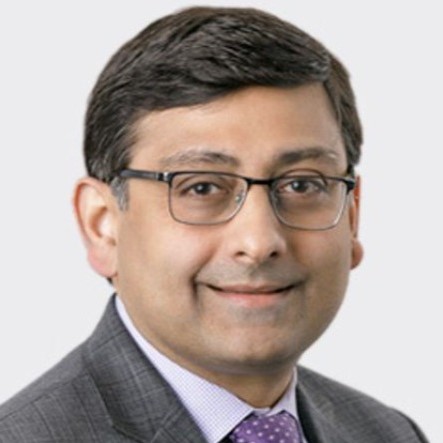 Jerry A. Krishnan, MD, PhD Jerry A. Krishnan, MD, PhD
Past President, CSCTR
Associate Vice Chancellor for Population Health Sciences
Professor of Medicine and Public Health
Epidemiology and Biostatistics
University of Illinois Chicago
Speaker:
Beginning with the End in Mind: Designing for Dissemination and Sustainability
Translational science seeks to advance the implementation process of turning observations in the laboratory, clinic and community into interventions that improve the health of individuals and the public. This lecture will discuss a new implementation science framework: Designing for Dissemination and Sustainability (D4DS). This approach actively engages stakeholders in the design of interventions, policies or programs to ultimately increase their adoption, sustainability, and impact on health and health equity. D4DS is a continuous and iterative Fit-to-Context validation approach that occurs throughout Conceptualization, Design, Dissemination and Impact translational phases. Case application to implementing and sustaining a national Electronic Health Record research network will be reviewed.
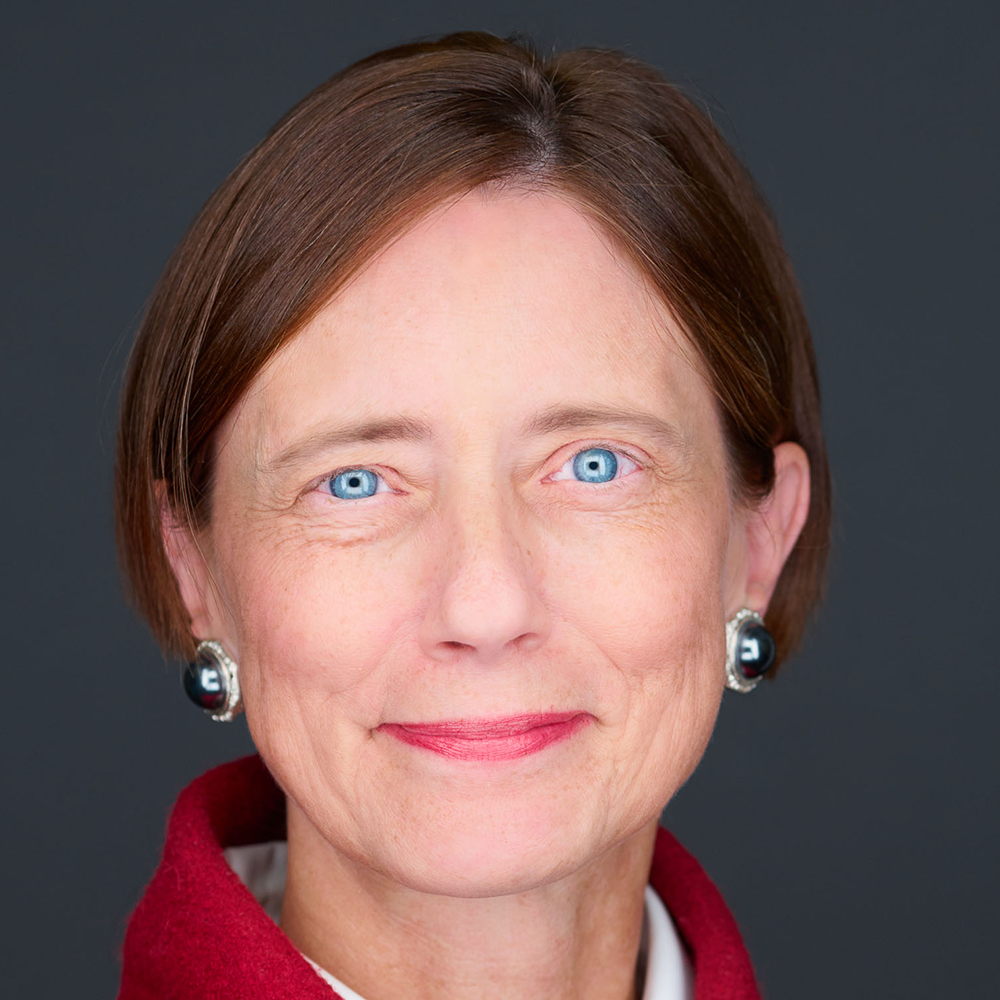 Elaine Morrato, DrPH, MPH, FISPE, CPH Elaine Morrato, DrPH, MPH, FISPE, CPH
Professor
Dean of the Parkinson School of Health Sciences and Public Health
Loyola University Chicago
|
King Arthur Court
(third floor) |
|
5:30 pm – 6:45 pm
|
Opening Reception and Moderated Poster Discussions
Wine, Beer, and Appetizers Served
 David Kennedy, PhD David Kennedy, PhD
President, CSCTR
Associate Professor of Medicine
University of Toledo College of Medicine and Life Sciences
 Jeffrey Salomon, MD, MBA Jeffrey Salomon, MD, MBA
Councilor, CSCTR
Midwestern Chair, AFMR Midwestern Region
Pediatric Critical Care Medicine Physician
University of Nebraska Medical Center
Poster Research Categories
Click on a category to view abstracts.
Case Reports
T0 Research/Science
T1 Research/Science
T2 Research/Science
T3 Research/Science
T4 Research/Science
|
Avenue Ballroom
(ground floor) |
|
6:45 pm
|
Dinner (on your own)
|
|
|
Meeting
Room
|
|
7:00 am – 3:30 pm
|
Registration Table
|
King Arthur Foyer
(third floor) |
|
7:00 am – Noon
|
Setup posters for Tuesday, April 15th, 1:45 pm session
|
Avenue Ballroom
(ground floor) |
|
7:30 am – 8:30 am
8:00 am Table Switch
|
Mentor and Attendee Breakfast
- Navigating the Maze: Mastering Human Subjects Research Policies
(for Clinical and Translational Research Staff and Investigators)
Mentor: Laneshia Tague, MD, MSCI and Mario Castro, MD, MPH
- Research Harmony: 7 Habits of Highly Effective Research Managers
(for Clinical and Translational Research Staff and Investigators)
Mentor: Lynn B. Gerald, PhD, MSPH and Syed Bukhari, MD
- Rise to the Top: Securing Leadership Roles in Regional & National Committees
Mentor: Attaya Suvannasankha, MD and Jennifer Alexander-Brett, MD, PhD
- Priority Power: Mastering Communication & Negotiation for Success
Mentor: Jerry A. Krishnan, MD, PhD and Steven Dudek, MD
- Mentor Match: Building Strong, Lasting Mentor/Mentee Relationships
Mentor: Anupam Kotwal, MBBS, MSc and David J. Kennedy, PhD
- Women Who Balance: Thriving in Medicine & Science
Mentor: Tara G. Mehta, PhD and Sara Becker, PhD
- Case Closed: Evolving from Case Reporter to Clinical Investigator
Mentor: Jeffrey Salomon, MD and Suthat Liangpunsakul, MD, MPH
|
Camelot Ballroom
(third floor) |
| |
|
8:45 am – 9:45 am
|
AFMR Keynote Presentation
Moderators:
 Jeffrey Salomon, MD, MBA Jeffrey Salomon, MD, MBA
Councilor, CSCTR
Midwestern Chair, AFMR Midwestern Region
Pediatric Critical Care Medicine Physician
University of Nebraska Medical Center
 Rajan Mediratta, MD Rajan Mediratta, MD
First-Year Resident
Loyola University Medical Center
Speaker:
Genomics-driven Identification of Novel Targets and AI-based Discovery of Drug Compounds for Lung Cancer
Overall, the lecture is on drug discovery, and it covers advances in precision medicine using genomics and AI-driven technologies. Lung cancer datasets were used in this study due to their availability in the public domain, however, the methodologies are broadly applicable to all domains that have appropriate genomics datasets.
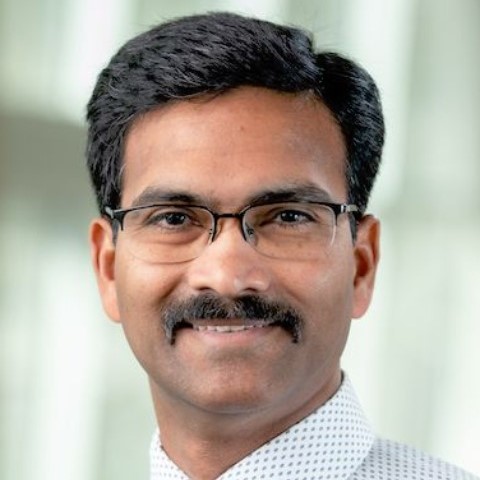 Chittibabu (Babu) Guda, PhD Chittibabu (Babu) Guda, PhD
Professor
Co-Director, Center for Biomedical Informatics Research and Innovation
University of Nebraska Medical Center
|
King Arthur Court
(third floor) |
|
9:45 am – 10:00 am
|
Coffee Break
|
Camelot Ballroom
(third floor) |
|
10:00 am – 11:00 am
|
Health Equity Session
Moderators:
 Laneshia Tague, MD, MSCI Laneshia Tague, MD, MSCI
Secretary-Treasurer, AFMR Midwestern Region
Assistant Professor of Medicine
Washington University in Saint Louis
 David Kennedy, PhD David Kennedy, PhD
President, CSCTR
Associate Professor of Medicine
University of Toledo College of Medicine and Life Sciences
 Jonnelle Edwards-Glenn, PhD Jonnelle Edwards-Glenn, PhD
Postdoctoral Scholar
Case Western Reserve University School of Medicine
Speakers:
Community engagement with hyper-local air pollution monitoring in an industrialized neighborhood on Chicago's far southeast side
 Christopher Olopade, MD, MPH Christopher Olopade, MD, MPH
Professor of Family Medicine
Professor of Medicine
The University of Chicago Medical Center
Preliminary findings on the environment in the All of Research Program
We have conducted linkages of air and water pollutants into the All of Us Research program and have some interesting results on PM2.5, lithium, and radon. Preliminary findings will be presented with a discussion of future opportunities and directions.
 Briseis Aschebrook-Kilfoy, PhD, MPH Briseis Aschebrook-Kilfoy, PhD, MPH
Professor of Family Medicine/Public Health Sciences
The University of Chicago
|
King Arthur Court
(third floor) |
|
11:00 am – 11:30 am
|
Award Ceremony
Outstanding Young Investigator Award
Themis Thoudam, PhD
Oral Abstract Awards
Christian Ascoli, MD
Shelbi Erp, MD
Ghandi F. Hassan, MD
Kelsey Holbert, MD
Andrew O. Kearney, BA
Mohammed I. Lone
Sara Osorio-Valencia
Zhihong Yang
John Q. Yap, PhD
Travel Awards
Jazzmyn Dawes, BS
David Doss
Nikhil Furtado, BS
Smriti Gurung, PhD
Adrienne Johnson, PhD
Ranjana K. Kanchan, PhD
Ignacio Ruiz-Sanchez
Upasana Shrestha, BS
Ava Wilson, PhD, MSPH
Top Three Poster Abstracts in each Research Category
Case Reports
Olaniyi Fadeyi
Israr Khan, MD
David G. Gonzalez Sanchez, MD
T0 Research/Science
Prabhatchandra Dube, PhD
Mariam Khwaja, BS
Mehruba Zaman, BS
T1 Research/Science
Helena Ikenberry
Jane Nakamura
Christen Vagts, MD
T2 Research/Science
Sarah Darski, MPH
Aidan Faller, BS
Denise Kent, PhD, APRN
T3 Research/Science
Angela C. Judd, MD
Alex J. Kloster, MD
Angelica Scanzera, OD, MPH
T4 Research/Science
Danyal Butt, MD
Ines Gonzalez Casanova, PhD
Megan E. Peterson, MPH, RN
|
King Arthur Court
(third floor) |
|
11:30 am – 12:30 pm
|
Lunch
|
Camelot Ballroom
(third floor) |
|
12:30 pm – 1:30 pm
|
CSCTR John B. Hickam Endowed Lecture
The John B. Hickam Endowed Lectureship was established in 1981 to honor John Hickam, President of CSCR in 1970. At the time of his death in 1970, Dr. Hickam was Chair of Medicine at Indiana University School of Medicine. Dr. Hickam was internationally recognized in medical research, particularly in the areas of lung, heart and circulatory system diseases. Dr. Hickam was also responsible for the administration of research programs, which established the Indiana University School of Medicine as one of the nation’s primary centers for research in heart disease.
Moderator:
 Jennifer Alexander-Brett, MD, PhD Jennifer Alexander-Brett, MD, PhD
President-Elect, CSCTR
Past Chair, AFMR Midwestern Region
Assistant Professor of Medicine
Washington University School of Medicine in St. Louis
Speaker:
Two Decades of Progress in Understanding Progressive Pulmonary Fibrosis
Dr. Blackwell will describe progress in studying progressive pulmonary fibrosis that has led to our current understanding of underlying mechanisms, genetic and environmental risk factors, and therapeutic targets for this disease.
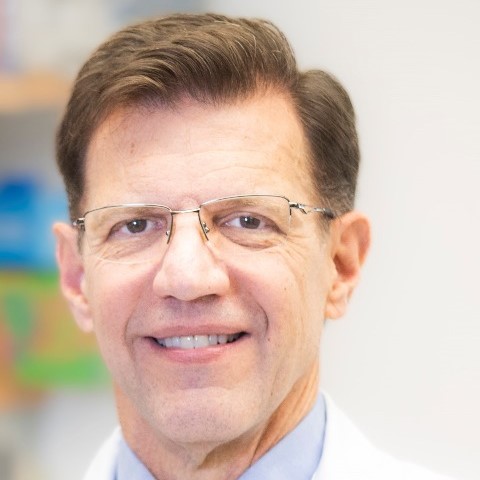 Timothy Blackwell, MD Timothy Blackwell, MD
John G. Searle Professor
Chair, Department of Internal Medicine
University of Michigan
|
King Arthur Court
(third floor) |
|
1:30 pm – 2:00 pm
|
Catalyzing Collaboration: Transforming Clinical and Translational Research Through Industry and Academic Partnerships
Join this new session that explores innovative collaborations between academia and industry aimed at accelerating research breakthroughs. Gain insights from successful partnerships, learn strategies for effective collaboration, and discover how working together can address pressing challenges and drive innovation in clinical and translational research.
Moderators:
 Jennifer Alexander-Brett, MD, PhD Jennifer Alexander-Brett, MD, PhD
President-Elect, CSCTR
Past Chair, AFMR Midwestern Region
Assistant Professor of Medicine
Washington University School of Medicine in St. Louis
 Jerry A. Krishnan, MD, PhD Jerry A. Krishnan, MD, PhD
Past President, CSCTR
Associate Vice Chancellor for Population Health Sciences
Professor of Medicine and Public Health
Epidemiology and Biostatistics
University of Illinois Chicago
|
King Arthur Court
(third floor) |
|
2:00 pm - 2:10 pm
|
Coffee Break
|
Camelot Ballroom
(third floor) |
|
2:10 pm – 3:20 pm
|
Moderated Poster Discussions
Click on a category to view abstracts.
Case Reports
T0 Research/Science
T1 Research/Science
T2 Research/Science
T3 Research/Science
T4 Research/Science
|
Avenue Ballroom
(ground floor) |
|
3:20 pm – 3:30 pm
|
Coffee Break
|
Camelot Ballroom
(third floor) |
|
3:30 pm – 4:45 pm
|
Translational Science Oral Session I: Pulmonary, Critical Care, Cardiology, and Renal
Moderators:
 Jeffrey Salomon, MD, MBA Jeffrey Salomon, MD, MBA
Councilor, CSCTR
Midwestern Chair, AFMR Midwestern Region
Pediatric Critical Care Medicine Physician
University of Nebraska Medical Center
 Laneshia Tague, MD, MSCI Laneshia Tague, MD, MSCI
Secretary-Treasurer, AFMR Midwestern Region
Assistant Professor of Medicine
Washington University in Saint Louis
Oral Presenters:
|
King Arthur Court
(third floor) |
|
3:30 pm
|
ADDITION OF PATHOLOGIC FLOW TO HEMIN-TREATED PULMONARY ARTERY ENDOTHELIAL CELLS IMPLICATES DISTINCT TRANSCRIPTOMIC PATTERNS IN SICKLE CELL DISEASE ASSOCIATED PULMONARY HYPERTENSION
Kelsey Holbert, MD
University of Illinois Chicago
|
|
3:42 pm
|
MITOCHONDRIAL METABOLIC REGULATOR PYRUVATE DEHYDROGENASE KINASE 4 (PDK4) MEDIATES SEX-SPECIFIC CARDIAC RESPONSE TO ENDOTOXEMIA
John Q. Yap, PhD
Loyola University Chicago
|
|
3:54 pm
|
SPATIAL TRANSCRIPTOMICS INSIGHTS ACROSS A SPECTRUM OF AIRWAY DISEASES
Ghandi F. Hassan, MD
Washington University in St Louis
|
|
4:06 pm
|
THE IMMUNE LANDSCAPE OF INTRATHORACIC LYMPH NODES IS ASSOCIATED WITH THE LYMPHOPENIC IMMUNOTYPE IN SARCOIDOSIS
Christian Ascoli, MD
University of Illinois at Chicago
|
|
4:18 pm
|
THE EFFECT OF NICOTINE DELIVERY SYSTEM ON EXTRACELLULAR MATRIX BLOOD PROTEASE LEVELS: A RANDOMIZED CROSSOVER DESIGN
Ava Wilson, PhD, MSPH
Kansas University Medical Center
|
|
4:30 pm
|
DISPARITIES IN TIMING AND DEMOGRAPHICS OF WITHDRAWAL OF LIFE-SUSTAINING THERAPY FOLLOWING IN-HOSPITAL AND OUT-OF-HOSPITAL CARDIAC ARRESTS
Shelbi Erp, MD
University of Illinois Chicago
|
|
3:30 pm – 4:45 pm
|
Translational Science Oral Session II: Endocrine/Metabolism, Gastroenterology
Moderators:
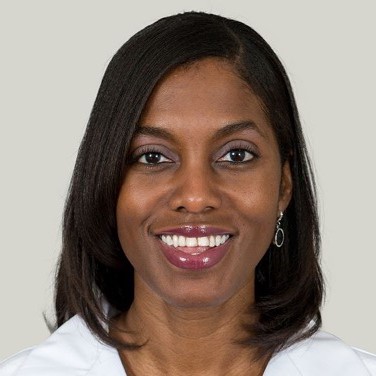 Rochelle N. Naylor, MD Rochelle N. Naylor, MD
Associate Professor of Pediatrics and Medicine
The University of Chicago Medicine
 Suthat Liangpunsakul, MD, MPH Suthat Liangpunsakul, MD, MPH
Past President, CSCTR
Professor of Medicine
Indiana University School of Medicine
Oral Presenters:
|
Streeterville Room
(ground floor) |
|
3:30 pm
|
ROLE OF PHOSPHATIDYLETHANOLAMINE METHYLTRANSFERASE (PEMT) IN METABOLIC DYSFUNCTION-ASSOCIATED STEATOHEPATITIS (MASH)
Sara Osorio-Valencia
University of Illinois Chicago
|
|
3:42 pm
|
KNOCKDOWN FAS ASSOCIATED FACTOR FAMILY MEMBER 2 PREVENTS ALCOHOL-ASSOCIATED LIVER DISEASE
Zhihong Yang
Indiana University
|
|
3:54 pm
|
MICROPUNCTURE-EXOSOMES DISPLAY AN ENHANCED IMMUNOANGIOGENIC PAYLOAD
Jazzmyn Dawes, BS
Penn State College of Medicine
|
|
4:06 pm
|
APOL1 KIDNEY DISEASE VARIANTS ALTER FAT DEPOSITION IN A SEX-SPECIFIC MANNER
Andrew O. Kearney, BA
Northwestern University
|
|
4:18 pm
|
MOTIVATING CHANGE IN OLDER ADULTS: A PILOT STUDY OF MOTIVATIONAL MESSAGES TO PROMOTE QUITTING SMOKING
Adrienne L. Johnson, PhD
University of Wisconsin School of Medicine and Public Health
|
|
4:30 pm
|
MENTAL HEALTH SCREENINGS IN THE ED: CHRONIC TRAITS OR TEMPORARY STATES?
Mohammed I. Lone
UChicago Medicine
|
|
3:30 pm – 4:45 pm
|
Translational Science Oral Session III: Hematology/Oncology, Rheumatology/Immunology and Neurology
Moderators:
 Jennifer Alexander-Brett, MD, PhD Jennifer Alexander-Brett, MD, PhD
President-Elect, CSCTR
Past Chair, AFMR Midwestern Region
Assistant Professor of Medicine
Washington University School of Medicine in St. Louis
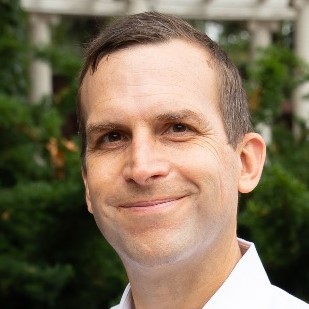 John D. Dickinson, MD, PhD John D. Dickinson, MD, PhD
Associate Professor of Medicine
University of Nebraska Medical Center
Oral Presenters:
|
St. Clair
(upper fifth floor) |
|
3:30 pm
|
CONTRIBUTION OF GONADAL VERSUS CHROMOSOMAL SEX TO EARLY LIFE STRESS-INDUCED SEXUALLY DIMORPHIC TOURETTE SYNDROME-RELEVANT PATHOLOGY
Ignacio Ruiz-Sanchez
Yale University
|
|
3:42 pm
|
CYTOTOXIC AND PRO-INFLAMMATORY EFFECTS OF MICROPLASTICS AND MICROCYSTIN TOXIN ON HUMAN AIRWAY EPITHELIAL CELLS
Upasana Shrestha, BS
The University of Toledo
|
|
3:54 pm
|
NORTRIPTYLINE: A REPURPOSABLE ADJUVANT TO CHEMOTHERAPY IN GROUP 3 MEDULLOBLASTOMA THAT TRIGGERS APOPTOSIS BY INDUCING MITOCHONDRIAL DYSFUNCTION
David Doss
Creighton University School of Medicine
|
|
4:06 pm
|
TARGETING THE ABCB7/GPX4 AXIS USING ARTESUNATE POTENTIATES CISPLATIN RESPONSE IN PEDIATRIC GROUP 3 MEDULLOBLASTOMAS BY TRIGGERING FERROPTOSIS
Ranjana K. Kanchan, PhD
University of Nebraska Medical Center
|
|
4:18 pm
|
SOCIOECONOMIC AND DEMOGRAPHIC DISPARITIES IN TREATMENT AND SURVIVAL OF OVARIAN SEROMUCINOUS CARCINOMA: A NATIONAL CANCER DATABASE STUDY
Nikhil Furtado, BS
Creighton University School of Medicine
|
|
4:30 pm
|
ENHANCING IMMUNOTHERAPY EFFICACY IN MYELOMA WITH A DUAL-ACTION MITOCHONDRIAL-TOXIC PEPTIDE THAT ACTIVATES T CELLS AND INDUCES TUMOR CELL DEATH
Smriti Gurung, PhD
Indiana University
|
|
4:45 pm – 5:45 pm
|
Closing Reception
Wine, Beer, and Appetizers Served
 David Kennedy, PhD David Kennedy, PhD
President, CSCTR
Associate Professor of Medicine
University of Toledo College of Medicine and Life Sciences
 Jeffrey Salomon, MD, MBA Jeffrey Salomon, MD, MBA
Councilor, CSCTR
Midwestern Chair, AFMR Midwestern Region
Pediatric Critical Care Medicine Physician
University of Nebraska Medical Center
|
Camelot Ballroom
(third floor) |
 Timothy Blackwell, MD
Timothy Blackwell, MD
























 Dawn Belt Davis, MD, PhD
Dawn Belt Davis, MD, PhD Anupam Kotwal, MBBS, MSc
Anupam Kotwal, MBBS, MSc







 Jerry A. Krishnan, MD, PhD
Jerry A. Krishnan, MD, PhD





 Rochelle N. Naylor, MD
Rochelle N. Naylor, MD John D. Dickinson, MD, PhD
John D. Dickinson, MD, PhD